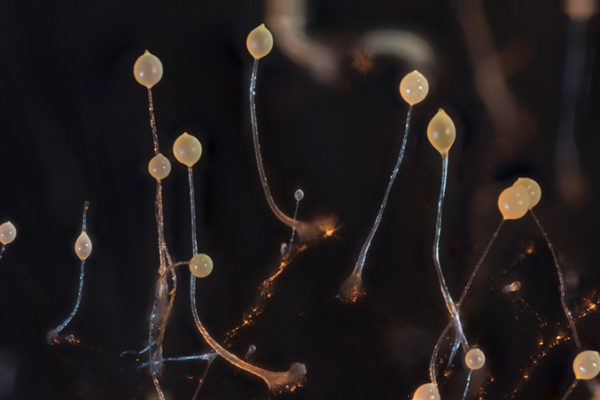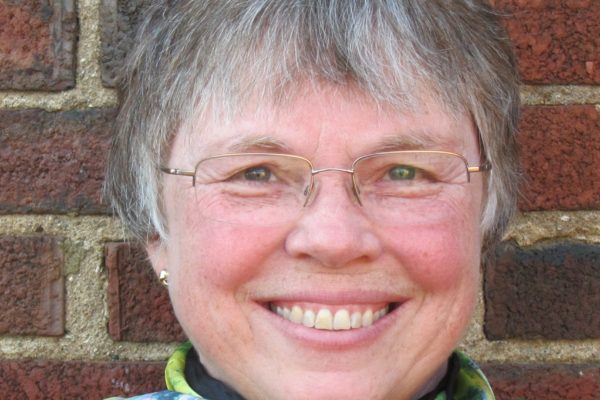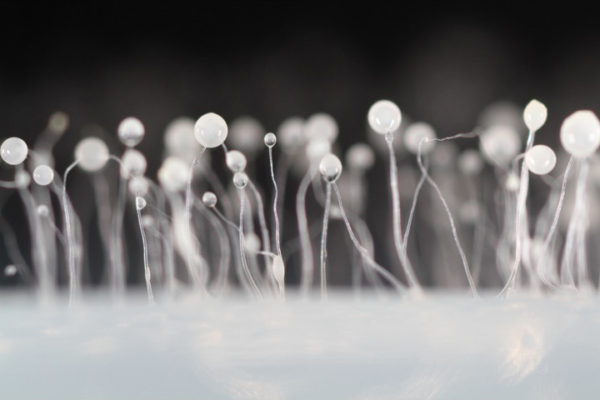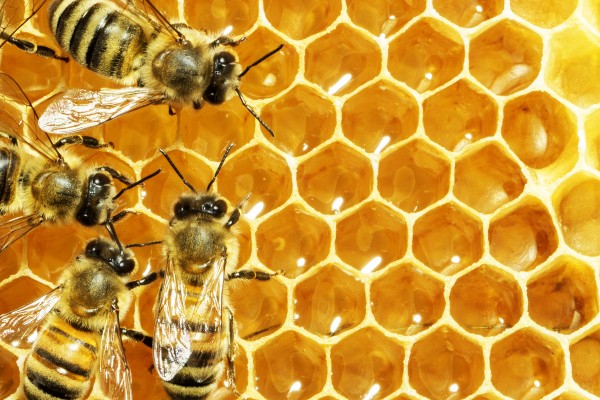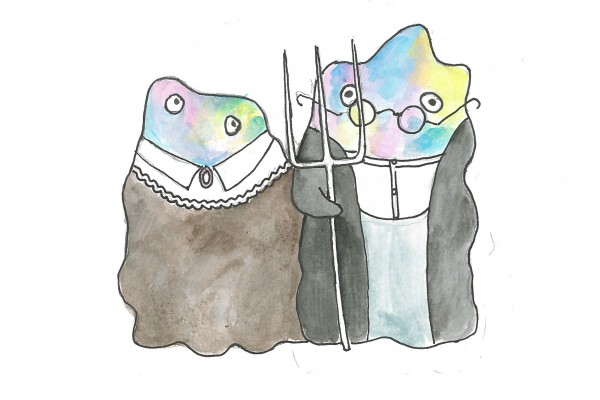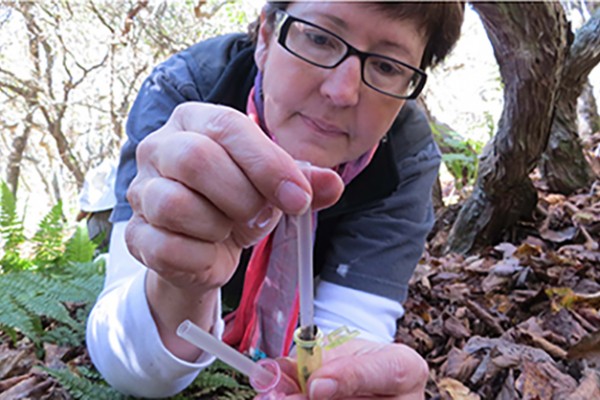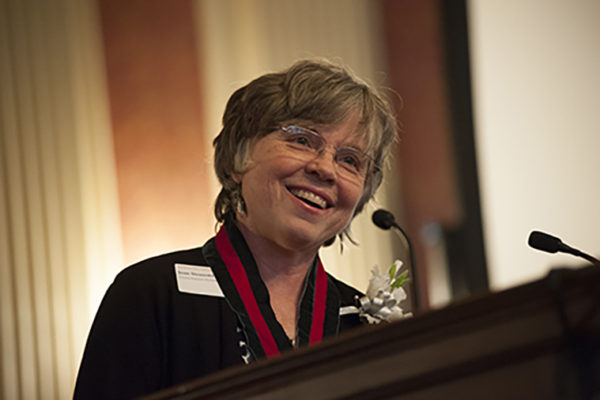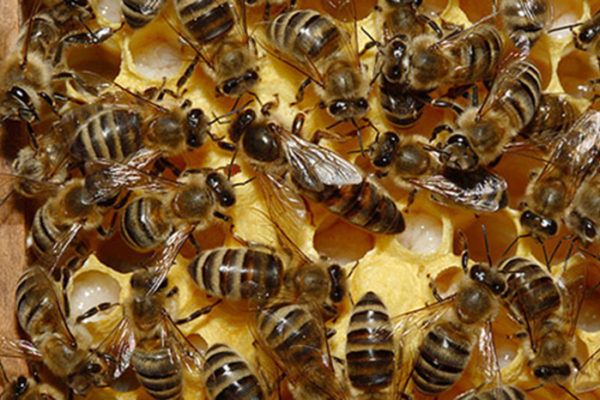Strassmann’s work investigates cooperative alliances that have occurred at several important steps in the evolution of life, and have proven evolutionarily and ecologically very successful. Studying how these alliances came to be, how conflicts are subsumed into cooperation, what conflicts remain, and how they influence sociality comprise her dominant research interests.
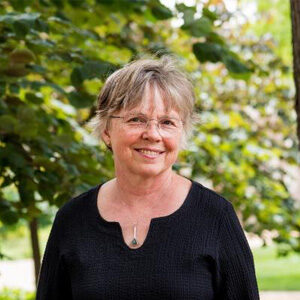
Joan Strassmann
Charles Rebstock Professor of Biology
Contact Information
- Phone: 314-935-3527
- Email: strassmann@wustl.edu
- Website: Website
Media Contact
In the media
After a Frantic Year, It’s Time for ‘Slow Birding’
Joan Strassmann, the Charles Rebstock Professor of Biology
Is it time for an update to evolutionary theory? (Podcast)
Joan Strassmann, the Charles Rebstock Professor of Biology
Stories
Arms races and cooperation among amoebae in the wild
Using new gene sequencing techniques, Washington University biologists are taking a closer look at the behavior of the social amoeba Dictyostelium discoideum, or Dicty for short.
WashU Expert: Advice to public on evidence, science
Joan E. Strassmann is a member of the National Academy of Sciences and the Charles Rebstock Professor of Biology in Arts & Sciences at Washington University in St. Louis, where she studies the evolution of conflict and cooperation. She writes a popular blog on becoming a biology professor with the goal of diversifying the professoriate. […]
Farming amoebae carry around detoxifying food
The social amoeba Dictyostelium discoideum can farm symbiotic bacteria for food by carrying them from generation to generation. New research shows that these bacteria can also protect the amoeba from environmental toxins.
The secret life of bee genes
Genes inherited from mothers (matrigenes) and fathers (patrigenes) usually work harmoniously in the offspring. However, kin selection theory predicts these genes may be in conflict in interactions among relatives in which they are unequally represented (half-siblings). In honey bees, patrigenes are predicted to favor daughters that lay eggs themselves rather than remaining sterile and rearing their half-sisters’ offspring. An experimental test bears out this prediction.
Bacterial infection makes farmers out of amoebae
A bacterial infection turns non-farming social amoebae into farmers, Washington University evolutionary biologists report in the Aug. 24 issue of Proceedings of the National Academy of Sciences.
Do cheaters have an evolutionary advantage?
What is it with cheating? Cheaters seem to have an immediate advantage over cooperators, but do they have an evolutionary advantage? A study published in Current Biology suggests the benefits of cheating change with its prevalence,in a population. Cheaters may succeed, for example, only when they are rare, and fail when they become so numerous they push out cooperators.
WUSTL to race wild strain of amoeba in World Dicty Race 2014
Biology researchers at Washington University in St. Louis are placing their bets on the wild side as they prepare a pack of social amoeba for competition Friday, May 16, in the first-ever Dicty World Race, an international science competition that carries a $5,000 prize for the single-celled organism deemed to be the “smartest and fastest” in negotiating a microscopic maze.
Strassmann installed as Charles Rebstock Professor of Biology
Biologist Joan E. Strassmann, PhD, was installed Jan. 23 as the Charles Rebstock Professor of Biology in Arts & Sciences in a ceremony in Holmes Lounge. Following the formal installation, Strassmann gave an entertaining talk about a high-stakes gamble she and Queller made 15 years ago: to switch from studying cooperation and conflict in social insects, famous for their complex societal arrangements, to studying it in an amoeba, whose claim to fame had been its simple lifestyle.
Microbes buy low and sell high
Microbes set up their own markets, comparing bids for commodities, hoarding to obtain a better price, and generally behaving in ways more commonly associated with Wall Street than the microscopic world. This has led an international team of scientists, including two from Washington University in St. Louis, to ask which, if any, market features are specific to cognitive agents.
Ignorance is sometimes bliss
Evolutionary biologist W.D. Hamilton predicted that organisms ought to evolve
the ability to discriminate degrees of kinship so as to refine their ability to direct help to individuals with whom they shared the most genes. But two WUSTL biologists point out that there seem to be many cases where “a veil of ignorance” prevents organisms from gaining this kind of information, forcing them to consider a situation from the perspective of all members of their group instead of solely from their own perspective or that of their close kin.
Three faculty elected to National Academy of Sciences
Three Washington University in St. Louis scientists are among the 84
members and 21 foreign associates elected to the National Academy of
Sciences this year. Election to the academy is considered one of the
highest honors that can be accorded a U.S. scientist or engineer.
A WUSTL undergraduate may have written that Wikipedia article you’re reading
This fall Joan Strassmann, PhD, professor of biology in Arts & Sciences taught a course in behavior ecology that was also an official Wikipedia course that required students both to edit an existing Wikipedia entry and then either add 25
references and 2500 words to a second entries or to create new ones. “No work by students as good as Washington University’s students should ever end up
in a professor’s drawer,” said Strassmann. “It was their responsibility
as smart people who were getting a great education to help others.”
Cheating — and getting away with it
We would all like to believe that there is a kind of
karma in life that guarantees those who cheat eventually pay for their
bad behavior, if not immediately, then somewhere down the line. But a
study of a new gene in the amoeba Dictyostelium discoideum suggests that, at least for amoebae, it is possible to cheat and get away with it.
Close family ties keep cheaters in check, study finds
Any multicellular animal poses a special difficulty for the theory of evolution. Most of its cells will die without reproducing, and only a privileged few will pass their genes. Given the incentive for cheating, how is cooperation among the cells enforced? In the Dec. 16 issue of the journal Science, Washington University in St. Louis biologists Joan Strassmann and David Queller suggest the answer is frequent population bottlenecks that restart populations from a single cell.
